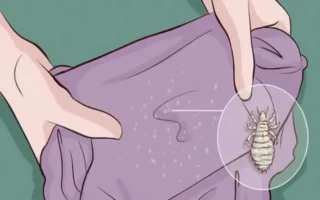If you discover a raccoon inside your house, it can be a startling and stressful situation. Raccoons typically enter homes by accident, often through pet doors, open windows, or chimneys, and they usually want to find their way back outside rather than stay inside. The key is to remain calm and avoid direct contact, as raccoons can bite if frightened. To safely encourage the raccoon to leave, contain pets away from the area, open doors and windows leading outside, and gently guide the animal toward the exit using a broom or vacuum cleaner from a safe distance. If the raccoon does not leave on its own after several hours, it is advisable to contact local animal control or a professional wildlife removal service for assistance. After the raccoon has been removed, take steps to seal entry points to prevent future home invasions.
Understanding Raccoons: Behavior and Habits
Raccoons are highly adaptable creatures known for their intelligence and dexterity. Their nimble paws enable them to manipulate objects and open containers with surprising ease. This ability often leads them into home design in search of easy meals.
These nocturnal animals are most active at night. They rely heavily on their acute sense of smell to locate food, making your garbage cans a prime target. Raccoons thrive in urban environments, where human activity creates ample opportunities for scavenging.
Understanding these habits can help you anticipate their movements and behaviors if they decide to explore your living space.
Signs of a Raccoon in Your House
Raccoons can be quite the uninvited guests. If you suspect one has made itself at modern home, look for certain telltale signs.
First, listen for unusual noises during the night. Raccoons are nocturnal and may rummage through your attic or walls. You might hear scratching or scurrying sounds as they explore.
Next, check for droppings in your yard or near entry points. Their feces often contain undigested food remnants like berries and insects.
Look for damage around potential entry areas too. Raccoons are skilled climbers; damaged vents or loose shingles could indicate their presence.
Keep an eye out for overturned trash cans outside your house. A messy scene is a clear sign that raccoons have been searching for snacks in your home garbage!
Steps to Take When You Discover a Raccoon in Your Home
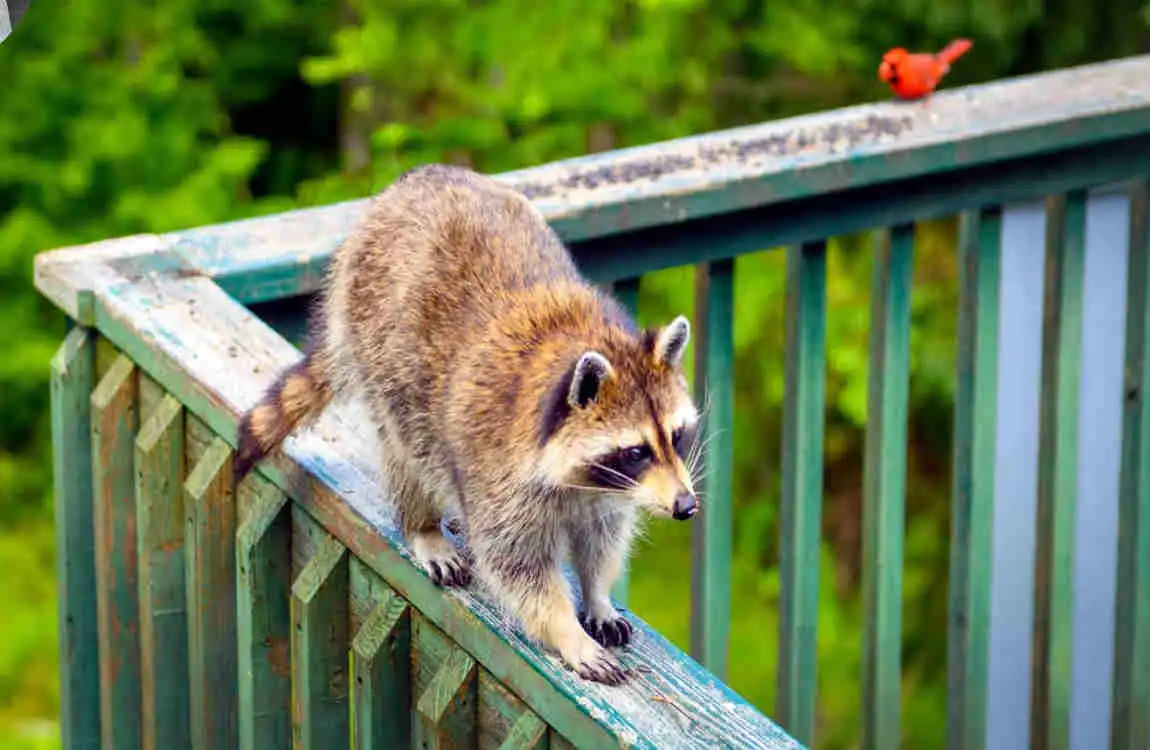
Discovering a raccoon inside your home can be startling. The first step is to stay calm. Typically, raccoons are more afraid of you than you are of them.
Avoid making loud noises or sudden movements that could provoke the animal. Instead, quietly observe from a safe distance to gauge its behavior and location.
Close off all access points in the house, like doors and windows, but leave one exit open for the raccoon to escape on its own if it chooses to.
If possible, remove pets from the area. This keeps everyone safer while also reducing stress for both your pets and the raccoon.
Consider setting up food outside as bait. It might coax the raccoon out without confrontation. Remember: patience is key during this unexpected encounter!
Safety Precautions When Dealing with Raccoons
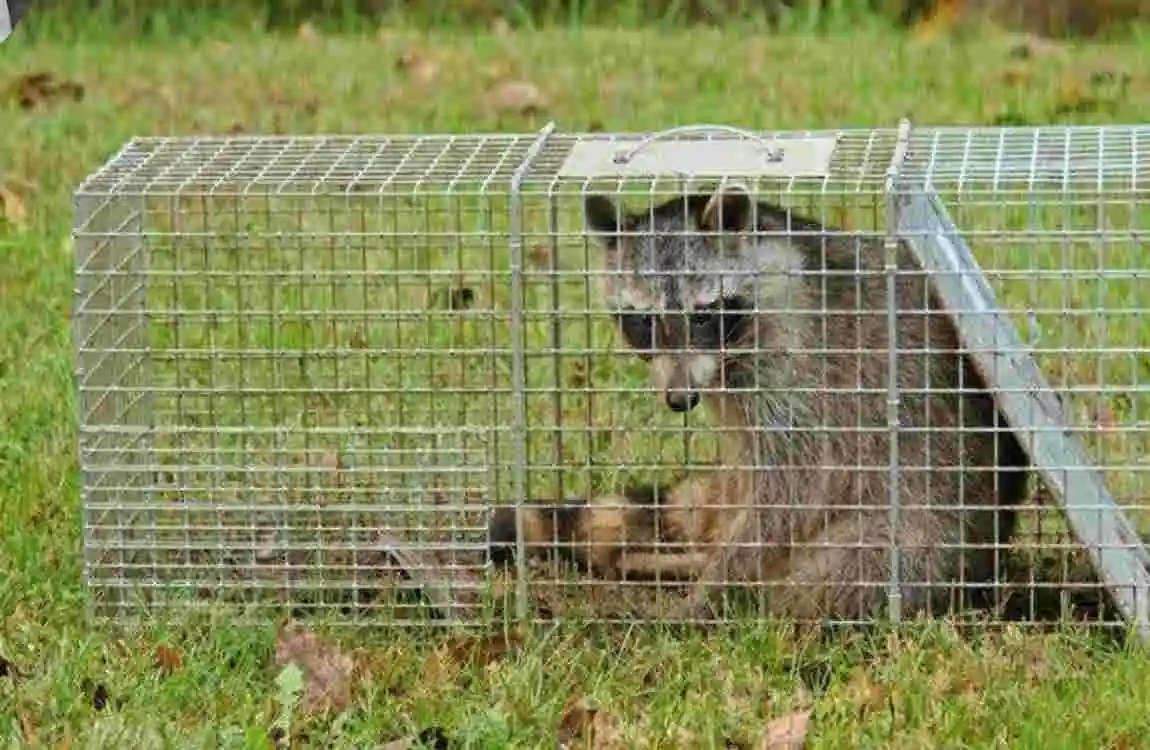
When dealing with raccoons, safety should be your top priority. These creatures can be unpredictable and may feel threatened if they’re cornered.
Always keep a safe distance. Avoid approaching them directly; their sharp teeth and claws can pose serious risks.
Wear gloves when handling any items that may have come into contact with the raccoon or its droppings. This minimizes your risk of disease transmission.
If you must enter the area where a raccoon has been spotted, make noise to alert it to your presence.There is a tendency for raccoons to flee rather than confront potential predators.
Never attempt to touch or capture a raccoon yourself unless you’re trained to do so safely. Instead, call professionals who know how to handle wildlife effectively.
Ensure children and pets are kept away from the vicinity until the situation is resolved properly.
How to Remove a Raccoon from Your House
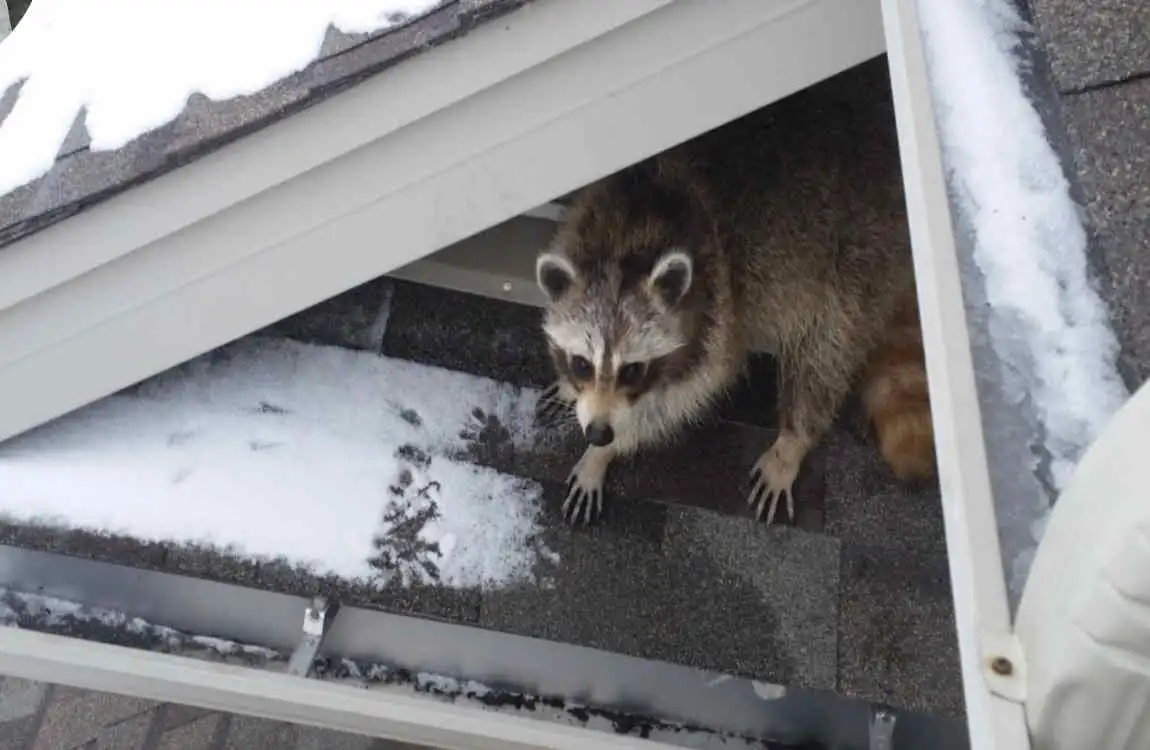
Removing a raccoon from your home requires careful consideration and action. Start by ensuring that pets and children are safely secured away from the area.
Close off any escape routes in advance. Raccoons can be surprisingly agile, so make sure all doors or windows leading outside are securely closed.
Next, create an inviting exit path for the raccoon. Set up a humane trap with bait like cat food or marshmallows to lure it out without causing harm.
Once trapped, contact local wildlife control for assistance in relocating the animal responsibly. Never attempt to handle a raccoon directly; they can carry diseases and may become aggressive if threatened.
Be patient during this process. Sometimes, giving the raccoon time to explore its options leads to a successful self-removal without further home intervention.
Prevention Tips to Keep Raccoons Out of Your Home
Keeping raccoons out of your home requires proactive measures. Start by securing your trash cans with tight-fitting lids. Raccoons are notorious for rummaging through garbage, so make sure to dispose of food scraps properly.
Inspect your property regularly for any potential entry points. Look for gaps in the roof, torn vents, or openings around windows and doors that could serve as an invitation for these curious creatures. If you find any, seal them promptly.
Consider installing raccoon-proof fencing around your yard if you have a garden or pet area. This adds another layer of protection against unwanted visitors. Additionally, remove outdoor food sources like pet dishes or bird feeders at night; this can deter raccoons from visiting.
Keeping your yard tidy is essential. Clear away debris and clutter where raccoons might find shelter during the day. By taking these steps, you’ll create an environment that discourages raccoons from making themselves at home features in yours.
If a raccoon does wander in despite your best efforts, knowing how to get it out safely will be invaluable in protecting both yourself and the animal.
How to Get a Raccoon Out of Your House – FAQs
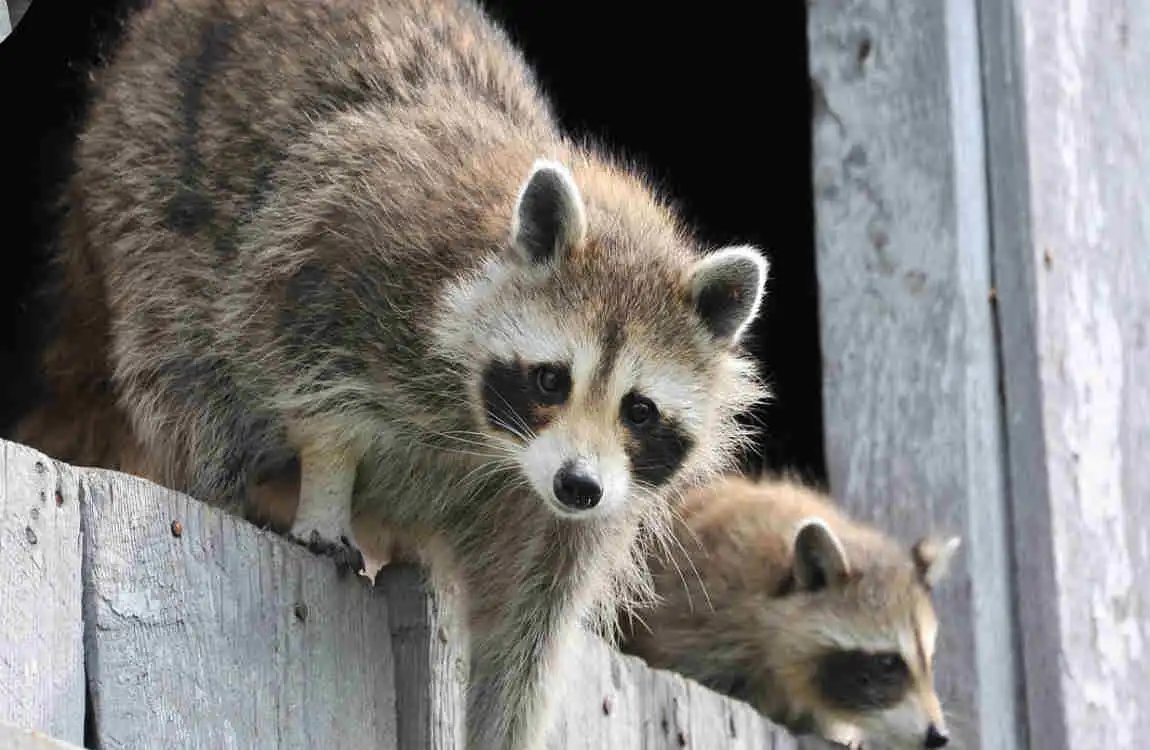
How do raccoons get into houses?
They often enter through open pet doors, chimneys, vents, gaps under the house, or holes in walls
What should I do if a raccoon is inside my house?
Avoid direct contact as raccoons can carry diseases. If you must handle the situation, it’s best to call a professional wildlife removal service.
How can I encourage a raccoon to leave?
Remove food sources like pet food or bird feeders, close off access points, and try to gently guide the raccoon toward an exit. Avoid trapping young raccoons inside by ensuring all escape routes are open home.




